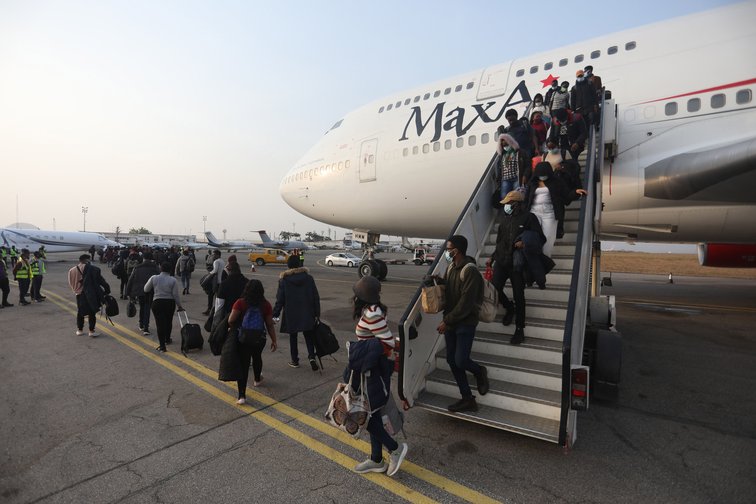Wasiu Sidiq, 21, was studying at Lviv National Medical University when the war broke out and he was evacuated. When he returned to Nigeria, he attempted to continue his studies remotely – but stopped when the Medical and Dental Council of Nigeria said it would not recognise medical certificates issued for online study.
The government claimed it was providing an option for the evacuated students to continue their education in Nigerian universities instead. The Foreign Affairs Ministry published a call-out on its website asking concerned students to register towards being placed locally – but the website link never worked and no students could register.
Sidiq, frustrated, decided to return to Europe, where he headed for Lisbon and is currently working in customer services for 890 euros a month. He tried to start uni there, but does not speak Portuguese and so has been unable to.
"If I don't go to work, I cannot eat or pay my rent," he said. "So I don't have the time to go to the language class. All of us are just doing that."
Sidiq claims students have tried to contact the Nigerian embassy in Lisbon for assistance with resettlement and negotiations on residence permits.
"They have not responded to us at all," he said. "The embassy is not working. I have to leave Portugal to go and renew my passport."
openDemocracy approached the Nigerian embassy in Lisbon for comment. A consular assistant insisted the embassy could only respond in person, in a physical meeting. Written questions and requests for a virtual meeting were ignored. Repeated requests were also made to Aminu Tanko, head of the House Committee on Foreign Affairs and Diaspora and the Abuja office of the Nigerian in Diaspora Commission (NIDCOM). The latter promised a response that did not come.
Consular failures, according to John Osuntokun, a professor and former Nigerian ambassador to Germany, are largely due to lack of priority.
"It is a large country and there are so many issues waiting for attention and this situation is going to be the least important to them," he said. "My advice to them will be to come home."
Osuntokun said standard practice is for complaints from Nigeria's foreign missions to be relayed to the Ministry of Foreign Affairs for advice.
Asked if the ministry had received any such requests from the embassy, the foreign ministry spokesperson told openDemocracy: "The ministry has not received any such complaints."
Two years into the war and with fate hanging in the balance, experts believe there is little the embassies can offer now. "Consular services are not services that provide long-term solutions; they are supposed to provide immediate help and assistance," said Matthew Ayibakuro, a governance adviser at the Foreign, Commonwealth and Development Office in Nigeria.
* Name has been changed.







No comments:
Post a Comment